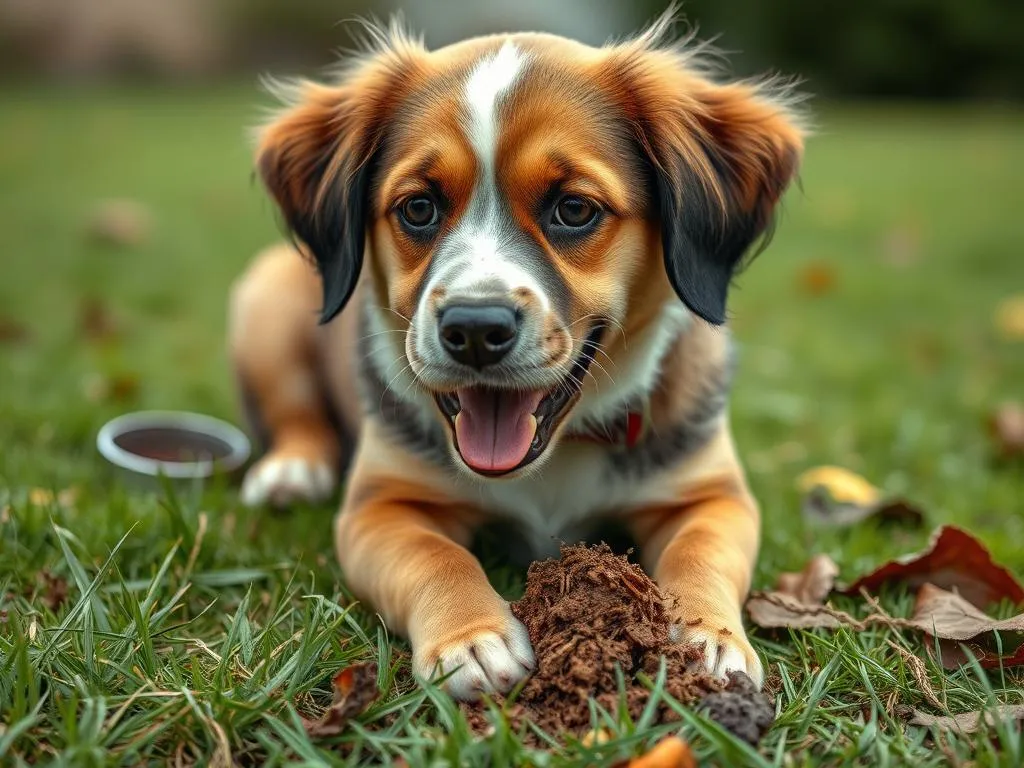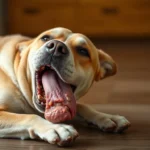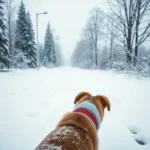
Understanding your dog’s health care is a vital part of being a responsible pet owner. One behavior that often raises concern among dog owners is when their canine companion poops immediately after eating. This occurrence can be puzzling and sometimes alarming. It’s essential to understand the reasons behind this behavior to ensure your furry friend’s well-being. In this article, we’ll explore the underlying causes of immediate post-meal defecation and highlight when it’s necessary to consult a veterinarian.
Understanding Dog Digestion
The Digestive Process in Dogs
The digestive system of dogs is designed to efficiently process food. When a dog eats, the food travels down the esophagus into the stomach, where it is mixed with gastric juices and broken down. From there, it moves into the intestines, where nutrients are absorbed, and waste is formed. This process typically takes several hours, but some dogs may experience quicker digestion based on various factors.
Normal Bowel Movements
For most dogs, a normal bowel movement occurs one to three times a day, though this can vary based on diet, age, and activity level. Factors that influence bowel movement frequency include:
- Diet: High-fiber diets can lead to more frequent defecation.
- Water Intake: Adequate hydration is vital for healthy digestion.
- Exercise: Regular activity helps stimulate normal bowel function.
Common Reasons for Immediate Post-Meal Defecation
The Gastrocolic Reflex
One of the primary reasons dogs may poop immediately after eating is due to the gastrocolic reflex. This reflex is a natural physiological response where the stomach stretches during eating, signaling the intestines to contract and move contents along. In dogs, this reflex can trigger the urge to defecate shortly after consuming a meal. This reaction can vary in intensity from dog to dog, with some feeling the need to relieve themselves almost immediately.
Dietary Factors
The type of food your dog consumes can significantly affect their bowel habits. For instance, diets that are high in fiber can promote quicker digestion, leading to rapid bowel movements. Conversely, low-quality commercial foods that are hard to digest may also cause immediate defecation as the body tries to eliminate waste quickly. Here are some dietary aspects to consider:
- High-Fiber Foods: These can stimulate bowel movements.
- Low-Quality Ingredients: These may not be easily digestible, prompting quick elimination.
- New Diets: Sudden changes in diet can upset a dog’s stomach and lead to immediate defecation.
Feeding Routines and Schedules
Feeding routines play a crucial role in your dog’s bowel habits. Dogs thrive on consistency, and having a regular feeding schedule can help regulate their digestive system. Additionally, the size and frequency of meals can influence bowel movements. For example, larger meals can lead to more significant stomach stretching, triggering the gastrocolic reflex and causing immediate defecation.
Potential Health Concerns
Gastrointestinal Disorders
While immediate post-meal defecation can be normal, it may also signal underlying gastrointestinal issues. Conditions such as irritable bowel syndrome (IBS) or pancreatitis can cause rapid bowel movements after eating. Symptoms to watch for include:
- Diarrhea: Frequent, watery stools can indicate a problem.
- Vomiting: This may accompany gastrointestinal distress.
- Loss of Appetite: A sudden decrease in food intake can be concerning.
Allergies and Intolerances
Food allergies and intolerances are another potential cause of immediate post-meal defecation. If your dog is allergic to certain ingredients, their digestive system may react negatively, leading to quick bowel movements. Signs that your dog may be experiencing food-related issues include:
- Itching or Scratching: Especially around the ears and paws.
- Gastrointestinal Upset: Such as bloating or gas.
- Skin Problems: Rashes or hot spots can indicate allergies.
Stress and Behavioral Factors
Dogs are sensitive creatures, and stress can significantly impact their digestive health. Stressors may include changes in environment, loud noises, or anxiety about separation from their owners. Behavioral signs of stress can manifest in various ways, including:
- Pacing or Restlessness: Indicating anxiety.
- Excessive Barking or Whining: Signs of distress.
- Changes in Eating Habits: Such as reluctance to eat or overeating.
When to Consult a Veterinarian
Signs of Concern
While immediate post-meal defecation can be normal for some dogs, certain symptoms warrant a veterinary visit. You should consult your veterinarian if you notice:
- Diarrhea: Persistent or severe diarrhea can lead to dehydration.
- Blood in Stool: This can indicate serious health issues.
- Weight Loss: Unexplained weight loss should be investigated.
- Lethargy: A sudden decrease in energy levels can signal illness.
Diagnostic Procedures
If you consult a veterinarian, they may recommend a variety of diagnostic procedures to determine the cause of your dog’s symptoms. These may include:
- Fecal Tests: To check for parasites or infections.
- Blood Tests: To assess overall health and organ function.
- Imaging: X-rays or ultrasounds to look for obstructions or abnormalities.
Treatment Options
Treatment plans will depend on the underlying cause of the immediate post-meal defecation. Potential options may include:
- Dietary Changes: Introducing a higher quality or specialized diet.
- Medications: To address gastrointestinal disorders or allergies.
- Behavioral Therapy: To manage stress-related issues.
Tips for Managing Your Dog’s Bowel Habits
Adjusting Diet
To help normalize your dog’s bowel movements, consider making dietary adjustments. Here are some recommendations:
- High-Quality Dog Food: Choose brands with high-quality ingredients and balanced nutrition.
- Gradual Diet Changes: If switching foods, do so gradually to avoid gastrointestinal upset.
- Consult a Vet: Discuss dietary options that may suit your dog’s specific needs.
Establishing a Routine
Maintaining a consistent feeding schedule is crucial for your dog’s digestive health. Here are some tips for creating a healthy feeding routine:
- Set Regular Meal Times: Feed your dog at the same times each day to encourage regular bowel movements.
- Measure Portions: Ensure you’re feeding the appropriate amount based on your dog’s size and activity level.
- Limit Treats: Too many treats can disrupt digestion.
Monitoring and Observation
Keeping track of your dog’s bowel habits can provide valuable insights into their health. Consider using a journal to note:
- Bowel Movement Frequency: Record how often your dog defecates.
- Consistency of Stool: Note any changes in texture or color.
- Diet Changes: Document any new foods or treats introduced.
Conclusion
Understanding why your dog poops immediately after eating can help you better care for their health. From the digestive process to dietary factors and potential health concerns, being informed allows you to take proactive steps to manage your dog’s well-being. Monitoring your dog’s behavior and seeking veterinary advice when necessary is crucial for maintaining their digestive health and overall quality of life. By being attentive to their needs, you can ensure your furry friend stays happy and healthy.









